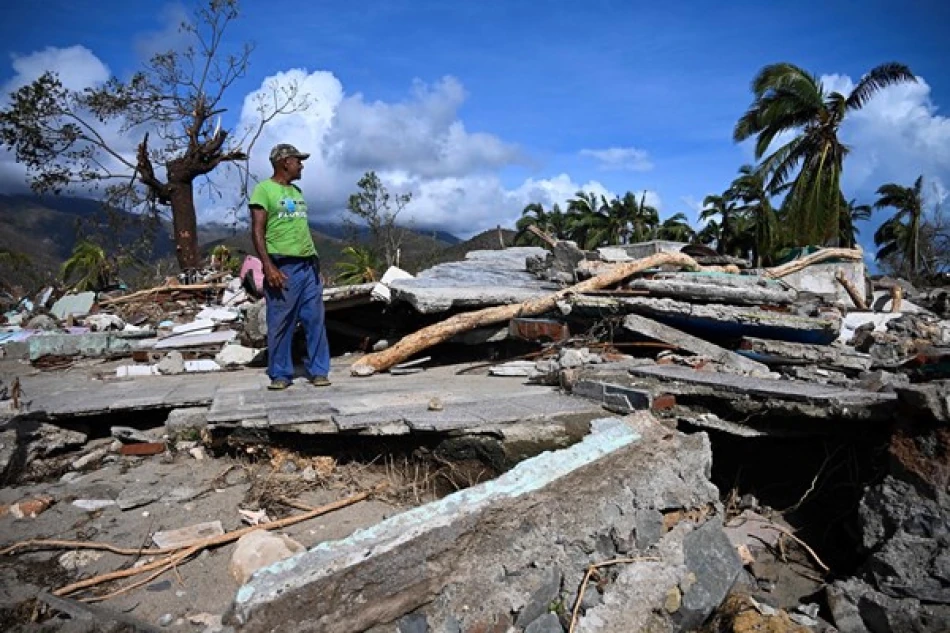
Melissa Hurricane Departs Cuba, Sets Sights on Bahamas: Prepare for Potential Impact
Hurricane Melissa has left a trail of destruction across the Caribbean, killing at least 50 people before reaching Cuba. The storm made history as the strongest hurricane to hit land in 90 years, matching records set in 1935. As Cuba begins cleanup efforts, the hurricane continues moving toward the Bahamas with winds of 155 kilometers per hour.
In Santiago de Cuba, the country's second-largest city, residents worked together Wednesday to clear streets filled with debris and fallen trees. The hurricane collapsed homes, ripped off roofs, and knocked out power across the city. Many electrical poles toppled over, and nearby rivers overflowed, sending water levels dangerously high in some areas.
Cuban authorities evacuated 735,000 people from eastern regions as the storm approached. President Miguel Díaz-Canel said the hurricane caused "serious damage" but didn't announce any casualties in Cuba. Heavy rains continue to pound the island, raising concerns about flash flooding and landslides.
The death toll tells a grimmer story in other Caribbean nations. Haiti reported 30 deaths, including 10 children, even though the hurricane's center didn't directly hit the country. The heavy rains alone caused devastating floods. Jamaica suffered 19 deaths when Melissa struck as a Category 5 hurricane on Tuesday.
Dennis Zulu, a UN coordinator for several Caribbean countries, described the damage as unprecedented. Speaking from Kingston, he said the destruction to infrastructure, property, roads, communications, and power networks was massive and unlike anything seen before.
The hurricane's intensity broke records that stood for nearly a century. Analysis of data from the US National Oceanic and Atmospheric Administration shows Melissa matched the 1935 "Labor Day" hurricane that destroyed the Florida Keys. Both storms hit land with winds of 300 kilometers per hour and atmospheric pressure dropping to 892 millibars.
More than 25,000 people in Jamaica are staying in shelters because their homes were destroyed. The recovery will take a long time given the scale of destruction. But amid the devastation, there was one bright moment - a baby girl was safely born during the emergency and named Melissa after the storm.
International aid is flowing to the affected regions. US Secretary of State Marco Rubio said America is in close contact with governments in Jamaica, Haiti, Dominican Republic, and the Bahamas. The US has sent relief teams and vital supplies to damaged areas. Britain announced emergency financial aid worth 2.5 million pounds.
The hurricane is now heading toward the Bahamas, where it's expected to remain dangerous. After that, Melissa will likely move toward Bermuda, with arrival expected Thursday evening.
Climate experts point out that rising ocean temperatures are making intense hurricanes with strong winds and heavy rains more frequent. The total number of hurricanes isn't increasing, but the severe ones are becoming more common - and more destructive.
Most Viewed News

 Layla Al Mansoori
Layla Al Mansoori






